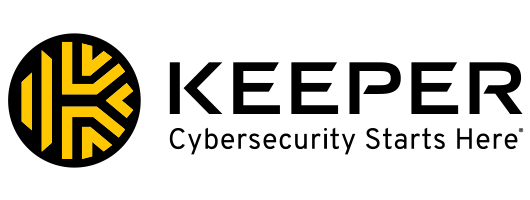
Andrew Maloney: Never-ending thirst for knowledge. [COO]
Andrew Maloney: Hello, I am Andrew Maloney. I am the COO and Co-Founder of Query. AI.
Andrew Maloney: I grew up in a very blue collar family, so it was a lot of trade craft. My grandparents, my mom's side were farmers. My father was in air conditioning, and, grandfather was a electrician. I enjoyed a lot of those things, tinkering and such growing up, but I was quick to learn that those were hard professions. I was a mechanic in high school for a while and realized that I didn't want to kind of follow in the footsteps of my father necessarily and work multiple jobs, and took an interest early on and in computers. But I always liked the military as well and had aspirations to go and serve the country. So that's the direction I ended up taking, which also led me into a path where I could go into computers.
Andrew Maloney: I enlisted at 17. I actually had to get a parental waiver. I was so young to go in and I joined the Air Force. The Air Force was really good for me. I always thought, you know, Special Forces would be really cool, tremendous respect for some of the special operations warfare fighters that we have. But thinking through that and talking to some of my family, and what do you do when you get out? Is there a career after the service if you're trained in combat and outside of maybe being a mercenary? The answer to that is probably, maybe not so much that's kind of directly applicable. Tech and computers were just coming to mainstream, still dial up modems at the time. I took what they call ASVAB, which is an aptitude standards test, and I scored pretty well, in math and science, which was the two key areas of focus for a lot of these kinds of tech fields. I started actually with the Navy and they wanted to put me into basically being a cryptographer. Sitting in a box and kind of decoding things all day long for the rest of my life doesn't sound all that exciting. So I walked into the Air Force recruiting office and showed him my ASVAB scores. There was a couple of courses around computers that were very appealing to me, so I ended up going into computer operations. That's really where it got started for me.
Andrew Maloney: I shipped off to basic shortly after, went into my tech school in Biloxi, Mississippi, and I took this curiosity, but very minimal knowledge of computers, and they gave me some really good foundational information from there.
Andrew Maloney: For me, the military was a good fit. Once I got to the tech school, though, I really found myself thriving because I was very interested in the course material. I had built a really strong and collaborative group of friends that I was serving with. We were all kind of in it together to work through it and do the best we could. It was a fantastic opportunity to, without being afforded the luxury to just go into kind of college, take your education classes that would give you theoretical knowledge. It was very much a crash course and a deep dive directly in what it takes to really do the job, frankly, which helped me tremendously in my transition from the military into the civilian life.
Andrew Maloney: When I was forward deployed to Oman around 2003 just after the start of the Iraq War, because just not necessarily having a large pool to choose from, it's like, Hey, can you do this? And if you're willing to kind of put the work in and volunteer, that's actually where I got my break into security. So I learned a tremendous amount in the military hands-on from what it means to operate at the help desk level, a lot of the kind of physical computer controls around processors and memories, and how these things work. And you start to kind of put these building blocks in place, which I think is critical to what I do today in kind of security. Because all of these different components really have to fit together in order to effectively secure an environment. The more I learned, the more I realized I had to learn, it was like this never ending thirst for knowledge.
Andrew Maloney: When I started to interview around and see what was out there, it was very clear to me that there was a tremendous amount of opportunity in the civilian sector doing kind of government contracting work in and around the DC area. I landed a job through some government contractors supporting the FBI and it was the enterprise security operation center stand up. It was just after Robert Hanson, the notorious spy, had been busted. So it was really interesting as well. The work we were doing, I very much believed in kind of similar to the mission of supporting our country directly as a service member.
Andrew Maloney: I still have to wear a technical hat looking at kind of the market demographics. What do our customers need? What are the problems that we need to be solving for oftentimes, and hopefully before the customers have even identified them or know what the solution is? Henry Ford said it best. I think if I ask people what they want, they would tell me a faster horse because they can't think far enough ahead necessarily to see the car. So I still wear the tech hat from that side, but I'm by no means hands on keyboard anymore. I'm actually implementing our solutions. So was much more business process, operations, financials, and ensuring that we're putting the right strategy in place, aligning the right resources within the company, and ultimately driving my team to succeed.
Andrew Maloney: One of the interview questions I often ask is what do I need to be able to do for you to make you successful? I've had a lot of different leaders in the past. I've hopefully taken some of the best of both from them. There's aspects of dictatorship in there, frankly, sometimes cause ultimately someone has to make a decision and be accountable for that decision. I always want input and everyone does have a seat at the table. I collectively get as much insights as I can from the team. I think it does take the village to really understand.
Andrew Maloney: I think transparency is key. That is an easy to use term, but I would say one of the biggest challenges throughout my career, and I would say from military onward. People often shy away from being direct and transparent whether that's with peers, leaders, or even subordinates. What I find really brings people together, especially in times of struggle, is that everyone is on the same page, looking at what the challenges are, and we're aligned towards a common goal. So I would say something that we've instilled in the culture of Query.AI from the very earliest inception is transparency.
Andrew Maloney: Some of the strongest lessons, I think throughout my career advice that I try to give when I have the opportunity to mentor people or talk through this really, regardless of their background. I mean, it all starts with you. You have to be driven, you have to be determined, and you have to be willing to put in the work. I think there are no handouts and sometimes it's easy to forget when people are in these positions and you feel like, Hey, I should have that job that they did put in a lot of time to get there. It's going to take work. It's going to take effort. Um, but if I'm persistent, I will ultimately get there. And that's the mindset, you've got to be willing to put in the work. That's step one and step two. Never sell yourself short. Everyone does this, myself included, and I tell people all the time, the day that I stopped being a director and started becoming a VP is the day that I stopped selling myself as a director. You've got to keep pushing and you've got to believe in yourself and never sell yourself short.
